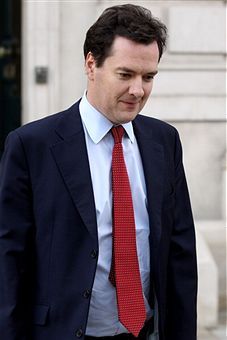 At the Comprehensive Spending Review tomorrow, we will get a much clearer picture of how
the Government plans to manage spending cuts. There are a few things we already know, though:
At the Comprehensive Spending Review tomorrow, we will get a much clearer picture of how
the Government plans to manage spending cuts. There are a few things we already know, though:
1) The overall cuts will be modest. As Fraser has pointed out, the overall cut in spending is small. Spending is going down to around the level it was at in 2006-07. It will remain several percentage points of GDP above the level at the start of the last decade.
2) Cut in some areas will be much sharper. The higher bill for Government debt interest, the ringfencing of Health and International Development and the relatively soft deal for some other departments means quite drastic cuts in other areas. The pressures created by those decisions are already becoming apparent. The saving from a one-year freeze in the International Development budget would be about the same as the amount saved by scrapping Harriers. Choosing to prioritise the latter is going to be a pretty hard sell. The same goes for cuts in prisons.
3) Some sensible decisions have been made to scrap quangos but plenty more have not suffered the fate they should yet. It is great news that the egregious Sustainable Development Commission is abolished. Some of the quangos ‘under review’ spend tens of millions every year and should be abolished. We wrote open letters to the ministers responsible for the Carbon Trust and the Equality and Humans Commission (EHRC) setting out why they should be abolished, along with Consumer Focus which apparently is going to go. The announcement on the EHRC was particularly disappointing, the Government announced that they will retain it, but with “better focus on its core regulatory functions and improved use of taxpayers’ money”. That is the “and a pony” school of Government, particularly when you are dealing with an unaccountable quango empty pledges of reform are meaningless.
4) Some important cuts have been made. The two-year public sector pay freeze was an important measure, first recommended by the TaxPayers’ Alliance (TPA) in How to Cut Public Spending, which will save a lot of money. It was reported this morning that another TPA recommendation from that book is set to be taken up, making the BBC responsible for funding free TV licences. That is a great way of ensuring the Corporation does its bit and isn’t effectively another ring fenced area of spending.
The situation is serious. The official debt is huge but the real debt is much bigger. Mike Denham, a former Treasury and City economist, has crunched the numbers for the TPA and finds that real debt is now £7.9 trillion. Even if you ignore the banks, as debts that the taxpayer probably won’t have to stump up for, that real debt has still mushroomed in the last decade. Pension liabilities (unfunded public sector pensions and accrued state pension liabilities) are up £2.2 trillion.
Mike sets out the scale of the issue in this new video:
As Mike says, it is all a bit scary. We should know a lot more about what the Government plans on doing to get us out of that scary situation tomorrow.
Matthew Sinclair is Director of the Taxpayers’ Alliance






Comments